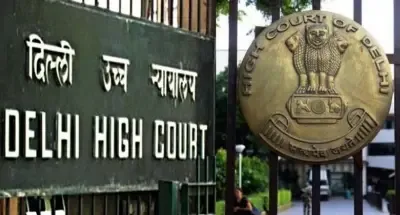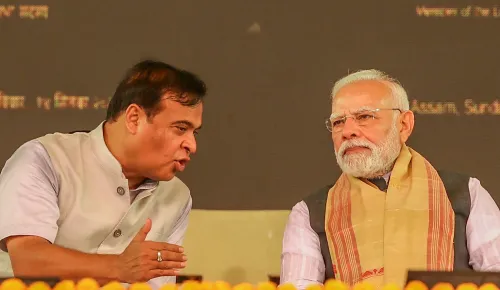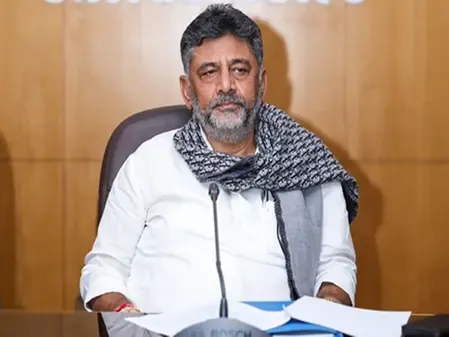Why is the Delhi HC questioning Patanjali's claim that other Chyawanprash products are 'dhoka'?

Synopsis
Key Takeaways
- Delhi High Court reserves ruling on Dabur's plea against Patanjali.
- Advertisements must maintain integrity to avoid misleading consumers.
- Legal challenges in the Ayurvedic sector are intensifying.
- Consumer trust is essential for brand credibility.
- Public opinion can significantly impact brand reputation.
New Delhi, Nov 6 (NationPress) The Delhi High Court has postponed its ruling on Dabur India's request for a temporary injunction against Patanjali Ayurved's recent advertisement, which reportedly labels all other Chyawanprash products as "dhoka".
During the proceedings, Justice Tejas Karia of a single-judge Bench challenged Patanjali on its assertion that all competing Chyawanprash brands are fraudulent while positioning its own product as the only "truth".
"You may suggest that others are subpar. However, declaring them dhoka is unacceptable. How can you categorize all other Chyawanprash as dhoka? You can claim they are inferior, but labeling them as fraud is unwarranted. Is there not an alternative term that could be utilized rather than dhoka?" Justice Karia noted.
Dabur, which commands over 60% of the Chyawanprash market share, has taken legal action against Patanjali, accusing it of disparagement, defamation, and engaging in unfair competition.
The complaint referenced a widely disseminated 25-second advertisement where a mother is seen providing her child with Chyawanprash and the phrase "chalo dhoka khao", followed by Baba Ramdev asserting that "most people are consuming fraud in the name of Chyawanprash".
Senior advocate Sandeep Sethi, representing Dabur, contended that the wording suggests that "the majority of consumers are being deceived by Chyawanprash", despite all licensed producers being required to adhere to established Ayurvedic formulations.
"Labeling an entire category of products as dhoka is inherently disparaging. Given that it comes from a self-declared yoga expert, it carries greater weight as people tend to associate such statements with a level of credibility," Sethi argued, adding that the advertisement had received more than nine crore views within just five days.
Conversely, Patanjali's attorney, senior advocate Rajiv Nayar, defended the advertisement by stating: "Dhoka represents the ordinary. I am merely stating that all other Chyawanprash products are inferior to mine, which I have the right to express."
In response, Justice Karia remarked: "Ordinary or inferior is one thing. You can say inferior, but you cannot label them as fraud. You can discuss 51 herbs, yet why refer to these products as dhoka? Is this not a comparison?"
After extended deliberations, the Delhi High Court has reserved its ruling on Dabur's petition for an interim injunction.
This latest dispute follows months after Patanjali founder Baba Ramdev faced criticism for a series of videos in which he allegedly connected Hamdard's Rooh Afza with "Sharbat Jihad", leading the Delhi High Court to deem his comments prima facie contemptuous. In that instance, Ramdev was also instructed to remove the videos after the court described them as "shocking to the conscience".









